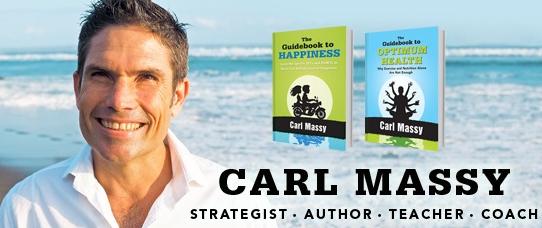by Carl Massy: I am not going to ask if you have ever been stressed before because I know the answer is a big YES. You are pretty much guaranteed of stress in your life when you start playing the game. The game of life I mean.
There are many types and definitions of stress, but I am going to look at the one that is on the other side of overload. I will share with you the 7-Step Strategy that I use and have found effective, plus look at some of the preventative measures as well. Because let’s face it – there are definitely some parts of the stress game I would be happy to do without.
I was just about to write a list of effects from stress – like impaired immune system, reduced cognitive abilities, tiredness, etc. – but I figured that time is much better spent on How to Deal with Stress rather than covering something that most of us are all too familiar with. Before I do though, I want to make one point. Small amount of stress can be beneficial. In fact, we are unlikely to grow and actually find joy in our life without some stress; as it makes us grow and expand our consciousness. So some stress is good, too much is bad (so intellectually technical of me ;-)).
One of the main factors that contributes to, and is one of the major players in the game of stress is our sense of CONTROL. Not surprisingly, a feeling of no control leads to higher stress (and can lead to what psychologist call learned helplessness) and a feeling of total control leads to empowerment. So this is the first and probably main point. We either need to take back our control, find our control, ask for control, or let go of the things we can’t control (this last point, as you can imagine, is a biggy).
So here is a 7-Step Strategy for HOW to take back your control:
- Stop. This is essential. At some point you need to stop. Push back. Step away. Refuse to take any more on. Stop physically first and then stop mentally. For me, it was to climb out of my figurative washing machine…which leads to an immediate feeling of, “Boy that feels much better!”
- Get perspective. Jump into your imaginary helicopter and take it up to 500m and get a good look at the whole picture. What are all the parts that are making you feel overloaded? How do they fit together? Where are the bush fires? Where is the cavalry?
- Write down (your perspective). This is a super way to really get clear of what is going on. Plus it reduces the emotional intensity. And you will find that a complete head full of ‘stuff’ only fills up about 2-pages of paper. You sort of feel ripped off when you write down everything that is stressing you out and instead of a book the size of ‘War and Peace‘ all your worries fit on one A4 page of paper. The truth is that we can fill our minds up to capacity with just a few issues. Getting perspective is SO LIBERATING!
- Get clear about your objective or end result. This is essential. What is it that you most desire? Is it to be the best parent? Or be the best partner? Or earn enough money to take that world trip? Or provide enough money for your family to enjoy life more fully? Maybe you need to decide exactly when you need to achieve a particular goal – and maybe it does not need to be next week but can be just as useful to you, if you achieve it by next month. Once you know this…
- Get rid of anything and everything that does not take you closer to your desired result. This is one of the greatest things with stopping and getting a bird’s eye view. You figure out what is most important and then you can ditch the rest. You say ‘no’ a lot more. You push back. You can put things on the shelf for next year. You can delete a whole bunch of emails in your in-box. You can cancel the stuff that is not important. You take back CONTROL by deciding what is most important to you.
- Prioritize what you are left with and schedule them. Now you know what is most important; prioritize the remaining tasks and then schedule them for completion. Most important first and so on. Focus your energy on the number 1 task. Now since the brain does not like multi-tasking; focusing on one thing at a time makes you twice as effective and half as likely to make mistakes. Plus once a task is ‘scheduled’ it allows the brain to switch off that task and free up space in your working memory, because it considers that task ‘taken care of’.
- Take action (on the things that matter most in the order of their importance). Now you can put your time and energy into the most important stuff and know that it is taking you towards your most important goals. You have removed the unessential distractions. You have taken back control because now you are working on your priorities, as determined by you, after looking at what the result is you are after and the priorities for achieving it.This is what I did just last week and I realized that I had too much on at once. I also realized that I had set unrealistic target dates for some of my goals. I needed to change some dates. I also needed to get out a calendar for the month and schedule the most important tasks. Plus I needed to schedule in some down time and social time to allow for adequate (and highly essential) rest and mental ‘switch-off’.
Prevention is the best recipe. So…Be aware of when you are getting a little stressed out. At that point start to push back on additional tasks. Ask for assistance. Advise people that you are almost at capacity. Make sure you take extra care with your nutrition and hydration (lots of fresh fruits and vegetables and plenty of water) as this will give you more energy and fortify your immune system. Make sure you do physical activity and don’t let this slide; as being active can be a lifeline to increased energy, improved body functioning (at all levels) and increased mental clarity.
And on that note…it is time for me to go for a ride on my bicycle through the rice fields in Bali…
Adios!! And here’s to getting more strategic about stress management so that you don’t experience the overload, or when you do, you know exactly what actions you can take to wind it back in and get that happiness thing back online.








